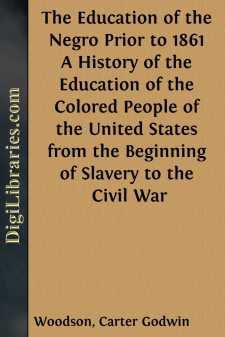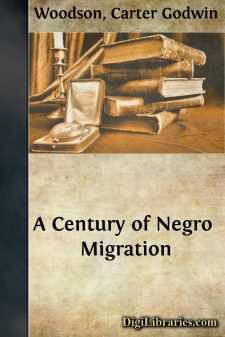Categories
- Antiques & Collectibles 13
- Architecture 36
- Art 48
- Bibles 22
- Biography & Autobiography 813
- Body, Mind & Spirit 142
- Business & Economics 28
- Children's Books 17
- Children's Fiction 14
- Computers 4
- Cooking 94
- Crafts & Hobbies 4
- Drama 346
- Education 46
- Family & Relationships 57
- Fiction 11829
- Games 19
- Gardening 17
- Health & Fitness 34
- History 1377
- House & Home 1
- Humor 147
- Juvenile Fiction 1873
- Juvenile Nonfiction 202
- Language Arts & Disciplines 88
- Law 16
- Literary Collections 686
- Literary Criticism 179
- Mathematics 13
- Medical 41
- Music 40
- Nature 179
- Non-Classifiable 1768
- Performing Arts 7
- Periodicals 1453
- Philosophy 64
- Photography 2
- Poetry 896
- Political Science 203
- Psychology 42
- Reference 154
- Religion 513
- Science 126
- Self-Help 84
- Social Science 81
- Sports & Recreation 34
- Study Aids 3
- Technology & Engineering 59
- Transportation 23
- Travel 463
- True Crime 29
Carter Godwin Woodson
Carter Godwin Woodson (1875–1950) was a prominent African American historian, educator, and author, often regarded as the "Father of Black History." He founded the Association for the Study of African American Life and History (ASALH) in 1915, aiming to promote the study of Black history. In 1926, Woodson launched Negro History Week, which later evolved into Black History Month. Among his notable works is "The Mis-Education of the Negro" (1933), a critique of the American educational system's failure to address the history and contributions of African Americans.
Author's Books:
Sort by:
CHAPTER I INTRODUCTION Brought from the African wilds to constitute the laboring class of a pioneering society in the new world, the heathen slaves had to be trained to meet the needs of their environment. It required little argument to convince intelligent masters that slaves who had some conception of modern civilization and understood the language of their owners would be more valuable than rude men...
more...
CHAPTER I FINDING A PLACE OF REFUGE The migration of the blacks from the Southern States to those offering them better opportunities is nothing new. The objective here, therefore, will be not merely to present the causes and results of the recent movement of the Negroes to the North but to connect this event with the periodical movements of the blacks to that section, from about the year 1815 to the...
more...



